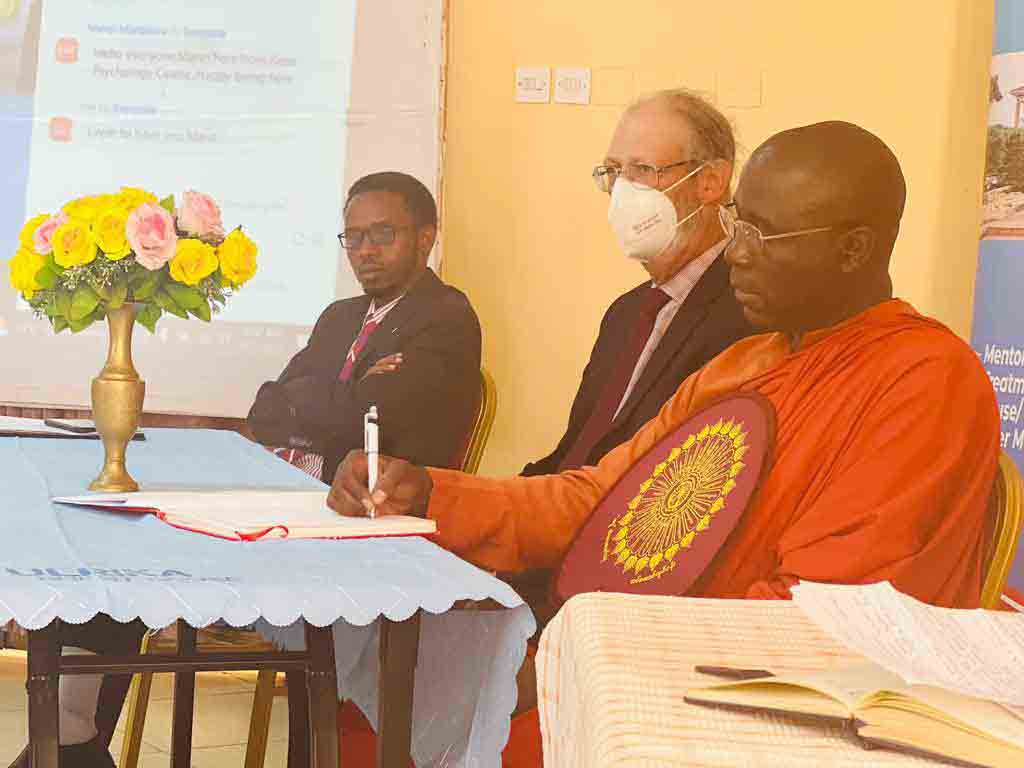Bhante Gives Keynote Speech at the East African Psychology Conference

Bhante Buddharakkhita was invited to give a keynote speech at the 8th International East African Psychology Conference. The conference was organised on the theme of Community Mental Health after COVID-19 Pandemic around the Globe” by the University of Kisubi in collaboration with the Uganda Behavioral Health Alliance and Sebastian Family Psychology Practice.
In his keynote speech, Bhante emphasised the need to develop culturally sensitive interventions that take into account the locally existing approaches that are underpinned by the African philosophy, “Ubuntu”—You are because I am. I am because you are. He said that “Cultural or spiritual healing practices lead to cultivation of positive virtues such as self-compassion, knowing the interconnectedness of our comm(unity) and indigenous wisdom.”
Furthermore, he demonstrated to his audience through a mindfulness practice that “The practice of mindfulness can lead to awareness of our thoughts, emotions and moods that when unchecked can lead to suicidal tendencies and addictions. Mindfulness and concentration meditation increase the quality of attention to whatever we are doing in the present moment, thus leading to increased performance and production in individuals and organizations. This is quite the opposite of forgetfulness whereby we don’t pay attention to what we are doing.”
He also impressed upon his audience the Buddhist Approach to community mental health through the practice of the Noble Eightfold Path which include:
- Right understanding
- Right thought
- Right speech
- Right action
- Right livelihood
- Right effort
- Right mindfulness
- Right concentration
He concluded by saying that the conference “does not only reflect our commitment to advancing the field of psychology, but also gives us an opportunity to move beyond territorial debates, research and scholarship. It gives many of us an opportunity to develop new evidence-based approaches and practices to healing our communities and addressing the postcovid-19 pandemic effects.”
